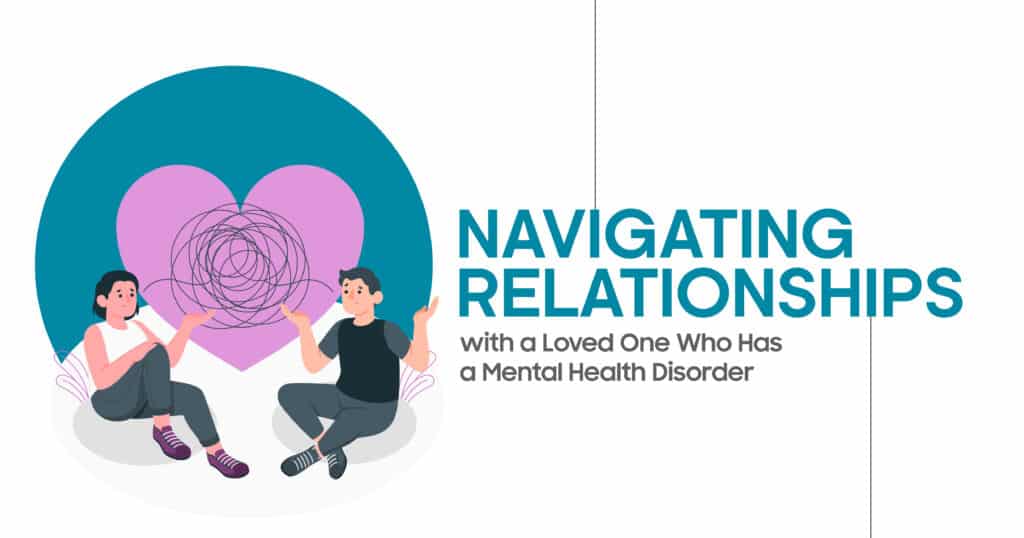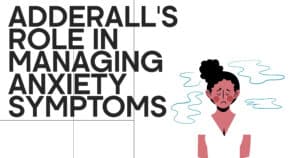Having a loved one who struggles with a mental health disorder can be challenging. Whether it’s a family member, partner, or friend, supporting someone with a mental health condition requires patience, empathy, and understanding.
Essential Takeaways
- Empathy is Crucial: Understand and approach your loved one’s condition with empathy and patience.
- Communicate Effectively: Use active listening and set healthy boundaries to support a balanced relationship.
- Self-Care Matters: Take care of yourself and build a support network to handle the emotional demands of caregiving.
This guide aims to help you navigate this journey by offering practical advice and compassionate support. We’ll explore how mental health disorders impact relationships, recognize signs and symptoms, and provide strategies for effective communication and support.
Understanding Mental Health Disorders
What are Mental Health Disorders?
Mental health disorders encompass a wide range of conditions that affect a person’s thoughts, feelings, and behaviors. These disorders can significantly impact daily life and relationships. Examples include:
- Depression: Characterized by persistent sadness, loss of interest in activities, and a range of physical symptoms like changes in sleep and appetite.
- Anxiety Disorders: Involves excessive worry or fear that can interfere with daily activities, such as generalized anxiety disorder, panic disorder, or social anxiety.
- Bipolar Disorder: Marked by extreme mood swings between manic highs and depressive lows.
- Borderline Personality Disorder (BPD): Features unstable emotions, relationships, and self-image, often resulting in intense and unstable interpersonal relationships.
Statistics show that mental health disorders are quite common. For instance, the National Institute of Mental Health reports that nearly 1 in 5 adults in the U.S. experience mental illness each year. Recognizing the prevalence of these conditions can help normalize the experience and reduce stigma.
How Mental Health Disorders Affect Relationships
Mental health disorders can influence relationships in various ways:
- Communication Challenges: Symptoms like irritability or withdrawal can make communication difficult.
- Emotional Toll: The emotional strain of supporting a loved one can lead to burnout or frustration.
- Behavioral Changes: The disorder may cause changes in behavior that affect family dynamics and interactions.
Understanding these impacts is crucial for fostering compassion and patience in your relationships.
Recognizing the Signs and Symptoms
Identifying Symptoms in a Loved One
Recognizing symptoms of a mental health disorder in a loved one can be challenging. Here’s what to look for:
- Depression: Persistent sadness, fatigue, changes in sleep patterns, loss of interest in activities.
- Anxiety: Excessive worry, restlessness, physical symptoms like a racing heart or sweating.
- Bipolar Disorder: Extreme mood swings, impulsive behavior during manic phases, deep sadness during depressive phases.
- Borderline Personality Disorder (BPD): Intense, unstable relationships, fear of abandonment, and impulsive behavior.
If you notice these symptoms, it’s important to approach the situation with sensitivity and care.
Understanding the Impact on Daily Life
Mental health disorders can affect daily functioning in several ways:
- Work and School: Concentration and performance may suffer.
- Social Interactions: Relationships with friends and family might become strained.
- Self-Care: Neglecting personal hygiene or health routines is common.
Being aware of these impacts helps you provide more effective support and understand what your loved one is going through.
Effective Communication Strategies
Approaching Conversations with Empathy
When discussing mental health with your loved one, approach conversations with empathy:
- Listen Actively: Show that you’re fully engaged and understand their feelings.
- Avoid Judgment: Keep your focus on supporting them, rather than offering unsolicited advice or judgments.
- Be Patient: Conversations may need to be repeated, and emotions can fluctuate.
For example, instead of saying, “You should just get over it,” try, “I’m here for you. How can I support you right now?”
Active Listening and Validation
Active listening and validation are crucial for effective communication:
- Reflect Back: Repeat what they’ve said in your own words to show understanding.
- Validate Feelings: Acknowledge their emotions without minimizing or dismissing them.
For instance, if your loved one says they’re feeling overwhelmed, respond with, “It sounds like you’re really struggling right now. That must be incredibly tough.”
Setting Healthy Boundaries
Setting boundaries is important for maintaining a healthy relationship:
- Be Clear: Communicate your needs and limits openly and honestly.
- Respect Boundaries: Ensure that you respect your loved one’s boundaries and encourage them to do the same with yours.
For example, if you need time for self-care, let your loved one know, “I need to take some time for myself right now. I’ll be back to talk later.”
Supporting Your Loved One
Encouraging Professional Help
Encouraging your loved one to seek professional help is a key aspect of support:
- Suggest Resources: Recommend mental health professionals, such as therapists or psychiatrists, and provide information about local resources.
- Offer Assistance: Help them make appointments or accompany them if needed.
Self-Care for Caregivers
Self-care is essential for caregivers to maintain their own mental health:
- Prioritize Your Well-Being: Take time for activities that rejuvenate you, whether it’s exercise, hobbies, or relaxation.
- Seek Support: Join support groups or seek counseling to process your own emotions.
Remember, taking care of yourself allows you to be a better support system for your loved one.
Building a Support Network
Creating a support network benefits both you and your loved one:
- Connect with Others: Reach out to friends, family, and support groups for advice and encouragement.
- Utilize Resources: Explore community resources and online forums for additional support.
A strong network can provide emotional support and practical help when needed.
Coping with Challenges
Managing Conflicts and Difficult Situations
Handling conflicts and difficult situations requires a balanced approach:
- Stay Calm: Approach conflicts with a calm and open mind.
- Focus on Solutions: Work together to find solutions that address both parties’ needs.
For example, if a disagreement arises, you might say, “Let’s find a way to address this issue together. What can we do to resolve it?”
Celebrating Progress and Small Victories
Acknowledging progress and celebrating small victories can boost morale:
- Recognize Achievements: Celebrate milestones and improvements, no matter how small.
- Encourage Positive Reinforcement: Provide positive feedback and encouragement.
Celebrating these moments reinforces the efforts and progress made in the journey.
Resources and Support
Finding Professional Help
Professional help can significantly impact treatment outcomes:
- Types of Professionals: Understand the roles of therapists, psychologists, and psychiatrists.
- Finding Help: Use directories, referrals, and reviews to find qualified professionals.
For example, you might use online tools to find a therapist and consult reviews to ensure they’re a good fit.
Useful Resources and Tools
Several resources and tools can provide additional support:
- Books and Websites: Look for credible books and online resources about mental health.
- Support Organizations: Connect with organizations that offer help and information.
Examples include the National Alliance on Mental Illness (NAMI) and Mental Health America (MHA).
Conclusion
Navigating relationships with a loved one who has a mental health disorder can be challenging, but with empathy, communication, and support, you can strengthen your relationship and provide meaningful help. Remember to prioritize both your well-being and that of your loved one as you journey through this process together.
If you’re seeking guidance and support for navigating relationships with a loved one who has a mental health disorder, reach out to us. We offer expert advice, resources, and support to help you and your loved one thrive. Take the next step toward a healthier, more supportive relationship today.
FAQs
1. How do I start a conversation about mental health with a loved one?
Choose a calm moment and express concern with empathy using “I” statements, like “I’m worried about you. How can I help?”
2. What if my loved one won’t seek professional help?
Gently encourage them by sharing information and offering support. Avoid pressure, but let them know you’re available when they’re ready.
3. What if I feel overwhelmed supporting my loved one?
Prioritize self-care, set boundaries, and seek support from friends, family, or a counselor.
4. How do I communicate during a crisis?
Stay calm, use clear language, and focus on immediate needs. Offer practical support and avoid trying to solve everything at once.
5. When is professional help urgently needed?
Signs include severe mood swings, threats of self-harm, inability to function daily, or drastic behavior changes. Seek immediate help if safety is a concern.







